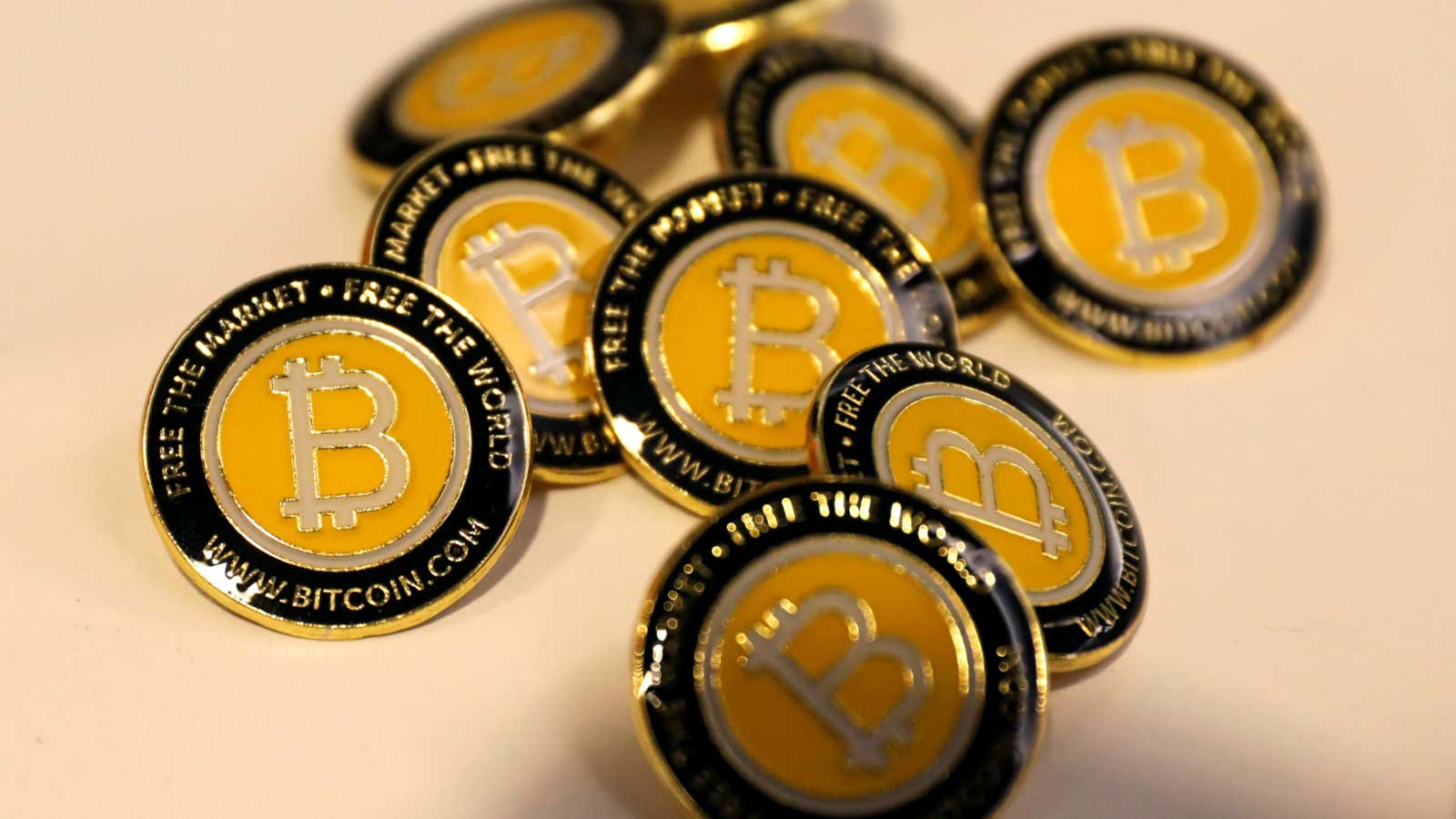After months of uncertainty, there are indications that India may not, after all, opt for a blanket ban on virtual currencies. A finance ministry panel set up to study them may even suggest that they be treated as commodities.
“I don’t think anyone is really thinking of banning it (cryptocurrencies) altogether. The issue here is about regulating the trade and we need to know where the money is coming from. Allowing it as (a) commodity may let us better regulate trade and so that is being looked at,” a senior government official privy to the panel’s discussions told Quartz, requesting anonymity.
Last month, Subhash Chandra Garg, secretary in the department of economic affairs and head of the cryptocurrency panel, told television news channel ET Now that the draft regulations are likely to be wrapped up in the first fortnight of July. Set up in December 2017, this task force includes BP Kanungo, deputy governor of the Reserve Bank of India (RBI), and Ajay Tyagi, chairman of market regulator Securities and Exchange Board of India.
The committee’s most important concern is keeping track of investors and funds to curb money laundering and illegitimate financing, the official said.
“Trade is not a criminal offence. Most of us trade in various asset classes in the stock market. So how is this (cryptocurrency trading) any different? What has to be in place is a mechanism to be sure that the money used is not illegal money, and to track its source is the most important thing,” the official said.
An email sent to the ministry of finance remained unanswered.
Second innings
The first panel set up by the Narendra Modi government in April 2017 to understand the expanding virtual currency ecosystem recommended slowly choking it. Not surprisingly, the second panel’s likely stance will come as a relief to cryptocurrency exchanges.
“Though cryptocurrencies belong to a new class of financial assets, we can still welcome them as commodities and not currencies because of their high volatile prices,” said Shubham Yadav, co-founder of Coindelta, a Pune-based cryptocurrency exchange. ”Many countries have been already going in this direction, including the US.”
Treating them as commodities will also make it clear to some investors that cryptocurrencies like bitcoin aren’t real currency, said R Gandhi, a former RBI deputy governor. “If these are used to settle transactions, then it acquires the nature of currency. So that is one thing that one needs to be wary of. But if people want to invest in a commodity then that is different, because then we can assume that they are aware of the risks involved.”
In order to address the government’s other concerns around security, Indian cryptocurrency firms have already agreed to be open for more scrutiny.
They claim robust know-your-customer and anti-money laundering guidelines are already in place and they are willing to incorporate more suggestions. “We are also ready to work with the government and assist them on creating a regulatory framework. We can help them in designing a monitoring system for blockchain where it can remotely monitor all transactions,” said Yadav.
